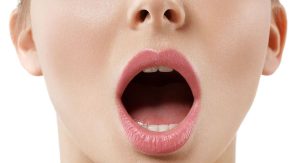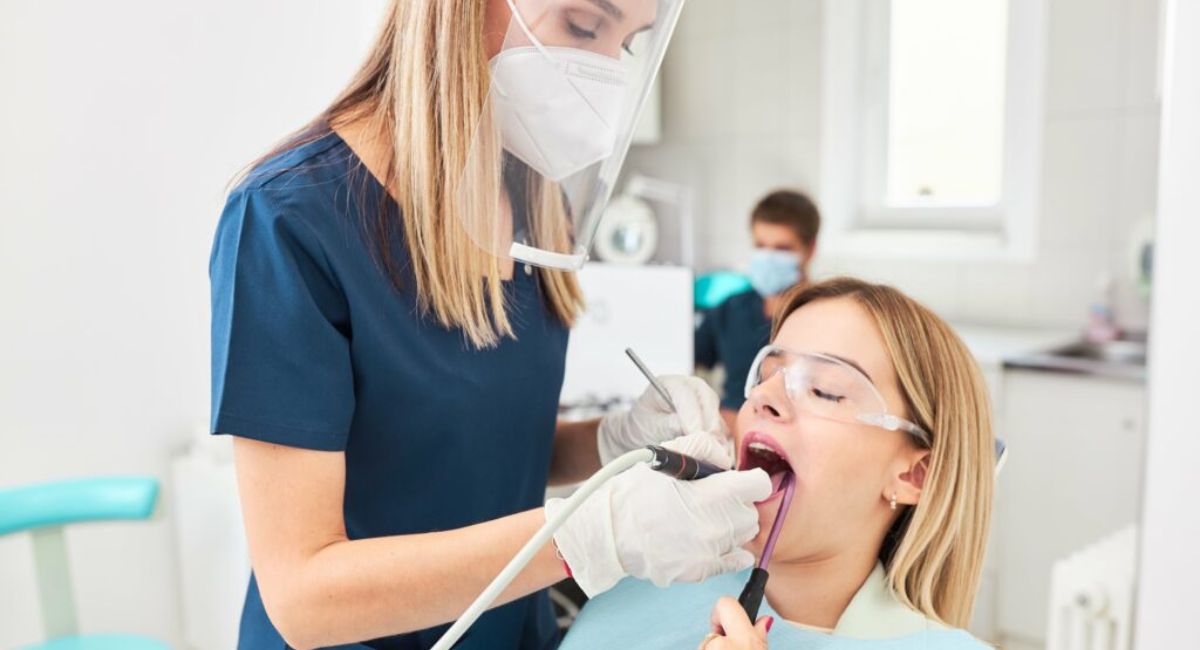Have You Ever Noticed Skin Peeling Inside Your Mouth?
You’re brushing your teeth or maybe eating something, and suddenly you feel it — a strange texture or small piece of skin coming loose inside your cheek. And Why Skin Peels in Mouth. It can be unsettling, especially when you don’t know what’s causing it. Is it something you ate? A sign of something serious? Should you be worried?
If you’ve ever experienced skin peeling in your mouth, you’re not alone — and you’re not imagining it. This in-depth guide will walk you through everything you need to know about why the skin in your mouth might peel, what it means for your health, and how to treat or prevent it. Whether the cause is harmless or something more serious, this article has you covered.
What Does It Mean When the Skin Peels in Your Mouth?

Defining Oral Mucosal Peeling
When we talk about skin peeling in the mouth, we’re referring to the sloughing or shedding of the thin, soft tissue lining the inner cheeks, tongue, gums, or roof of the mouth. This layer, known as the oral mucosa, plays an important role in protecting your mouth from bacteria, food particles, and mechanical irritation.
When this layer begins to peel or flake off, it may feel like thin strips or patches of white, translucent skin. Sometimes it’s painless; other times, it can come with redness, sensitivity, or discomfort.
Peeling skin in the mouth can be caused by a variety of things — from everyday habits to underlying health conditions.
Common Causes of Skin Peeling Inside the Mouth
1. Irritation from Toothpaste or Mouthwash
Many people don’t realize that their oral hygiene products may be the problem. Toothpaste containing sodium lauryl sulfate (SLS), a foaming agent, can irritate the sensitive lining of your mouth. Alcohol-based mouthwashes can also be too harsh.
What you can do: Try switching to an SLS-free toothpaste and using an alcohol-free, gentle mouthwash. Many people see improvements within a week.
2. Burns from Hot Food or Drinks
We’ve all taken a sip of tea that was too hot or bit into a pizza fresh out of the oven. The heat can burn the roof of your mouth or tongue, causing the top layer of skin to peel a day or two later.
Tip: Let hot foods and drinks cool slightly before consumption. If you do get a minor burn, rinse with cool water and avoid further irritation.
3. Allergic Reactions or Sensitivities
Sometimes, your body reacts to certain ingredients in food, dental materials, or oral care products. These reactions can inflame the mucosa and lead to peeling.
Common triggers include:
- Cinnamon flavoring
- Whitening agents
- Certain preservatives or dyes
4. Mechanical Trauma
This includes cheek biting, friction from braces or dentures, or brushing too hard. Repeated irritation causes the tissue to thicken and eventually slough off.
Solution: Use a soft-bristled toothbrush, get dental appliances adjusted, and be mindful of cheek chewing habits.
5. Fungal Infections (Oral Thrush)
Candida, a common fungus in the mouth, can overgrow under certain conditions — like after taking antibiotics or if you have a weakened immune system. One symptom is white patches that may peel away.
Other signs include:
- Redness
- Burning or soreness
- Loss of taste
6. Autoimmune and Systemic Conditions
In some cases, skin peeling in the mouth can be a symptom of an underlying health condition such as:
- Oral lichen planus
- Pemphigus vulgaris
- Stevens-Johnson syndrome
- Lupus
These are less common but more serious, often accompanied by ulcers, pain, and other systemic symptoms.
If you suspect this may be the case, see a healthcare provider promptly.
7. Nutritional Deficiencies

A lack of vitamins like B12, iron, folic acid, or zinc can weaken your mucosa and slow down healing. This makes it easier for the tissue to become inflamed or peel.
Fix it: A simple blood test and dietary adjustment or supplements can resolve these issues.
Challenges and Misconceptions
“It’s Always an Allergy”
While allergic reactions are common causes, many people overlook simple mechanical causes like overbrushing or toothpaste irritation.
“It Will Just Go Away on Its Own”
Minor peeling often resolves without treatment. But recurring or painful cases could indicate something more serious that requires attention.
“It’s Contagious”
Most forms of oral peeling aren’t contagious — unless caused by an active fungal or viral infection. Good hygiene is still important, but don’t panic unnecessarily.
How to Treat Skin Peeling in the Mouth
Step-by-Step Relief Plan
- Stop using any harsh oral products. Replace your toothpaste and mouthwash with gentler alternatives.
- Avoid spicy, hot, or acidic foods. These can worsen irritation.
- Rinse with salt water. This helps soothe and clean the area.
- Stay hydrated. Dry mouth can exacerbate peeling.
- Use a soft toothbrush and brush gently. Avoid scrubbing.
- Apply protective gels if needed. Some over-the-counter oral gels form a barrier to protect irritated tissue.
- Monitor for other symptoms. If you have ulcers, fever, or pain, consult a doctor.
Real-Life Examples
Case 1: Lisa, 32, noticed peeling inside her cheeks every morning. Turns out, her whitening toothpaste with SLS was the culprit. Switching brands stopped the peeling within days.
Case 2: Michael, 45, had ongoing sloughing and burning. His dentist identified a fungal infection following a recent round of antibiotics. An antifungal treatment cleared it up.
Case 3: Sarah, 28, who has lupus, began experiencing painful mouth ulcers and skin peeling. Her rheumatologist adjusted her medication, and symptoms improved.
Mistakes to Avoid
- Ignoring persistent symptoms
- Self-diagnosing serious conditions
- Using abrasive or whitening products when sensitive
- Continuing habits like cheek biting or smoking without addressing them
- Delaying professional evaluation when needed
Tips, Comparisons, and Alternatives
| Problem | Recommendation |
|---|---|
| Peeling after brushing | Switch to SLS-free toothpaste |
| After eating spicy food | Use a cooling saltwater rinse |
| Denture-related peeling | Have them realigned or replaced |
| Peeling with white patches | See a doctor for fungal testing |
| Nutritional causes | Request a vitamin panel from your doctor |
Industry Insights & Trends
- More people are switching to SLS-free and natural oral care products.
- Functional medicine is increasingly linking oral symptoms to gut and immune health.
- Dentists are seeing rising cases of oral irritation due to stress-related behaviors like grinding and cheek biting.
- Tele-dentistry is making initial consultations more accessible for oral health concerns.
Frequently Asked Questions (FAQs)
Why does my mouth peel after brushing my teeth? This is often due to sodium lauryl sulfate (SLS) in toothpaste, which can irritate the oral mucosa.
Is peeling inside the mouth a sign of cancer? Not usually. However, if it comes with sores that don’t heal, bleeding, or hard lumps, seek medical advice.
Can stress cause skin peeling in the mouth? Yes. Stress-related habits like cheek biting or teeth grinding can lead to repeated trauma and sloughing.
How long does it take to heal? Minor irritation can heal in 3–7 days. If symptoms persist beyond two weeks, see a professional.
Should I be worried about white patches that peel off? If the area is painless and goes away quickly, it may be harmless. Persistent patches should be evaluated for fungal or immune conditions.
Can children experience this? Yes, especially if they use strong toothpaste or mouthwash. Always choose age-appropriate products.
Final Thoughts: What Should You Do Now?
Peeling skin in the mouth can range from a minor annoyance to a sign of something that needs medical attention. The key is paying attention to when and how it happens, making small changes, and seeking help if it doesn’t improve.
Start with your oral care products and habits. Make adjustments, be gentle with your mouth, and give it time to heal. And if things don’t get better, don’t hesitate to reach out to a dentist or doctor. Your mouth is trying to tell you something — it’s worth listening.


1 thought on “Why Skin Peels in Mouth: Causes & How to Treat It”
Comments are closed.